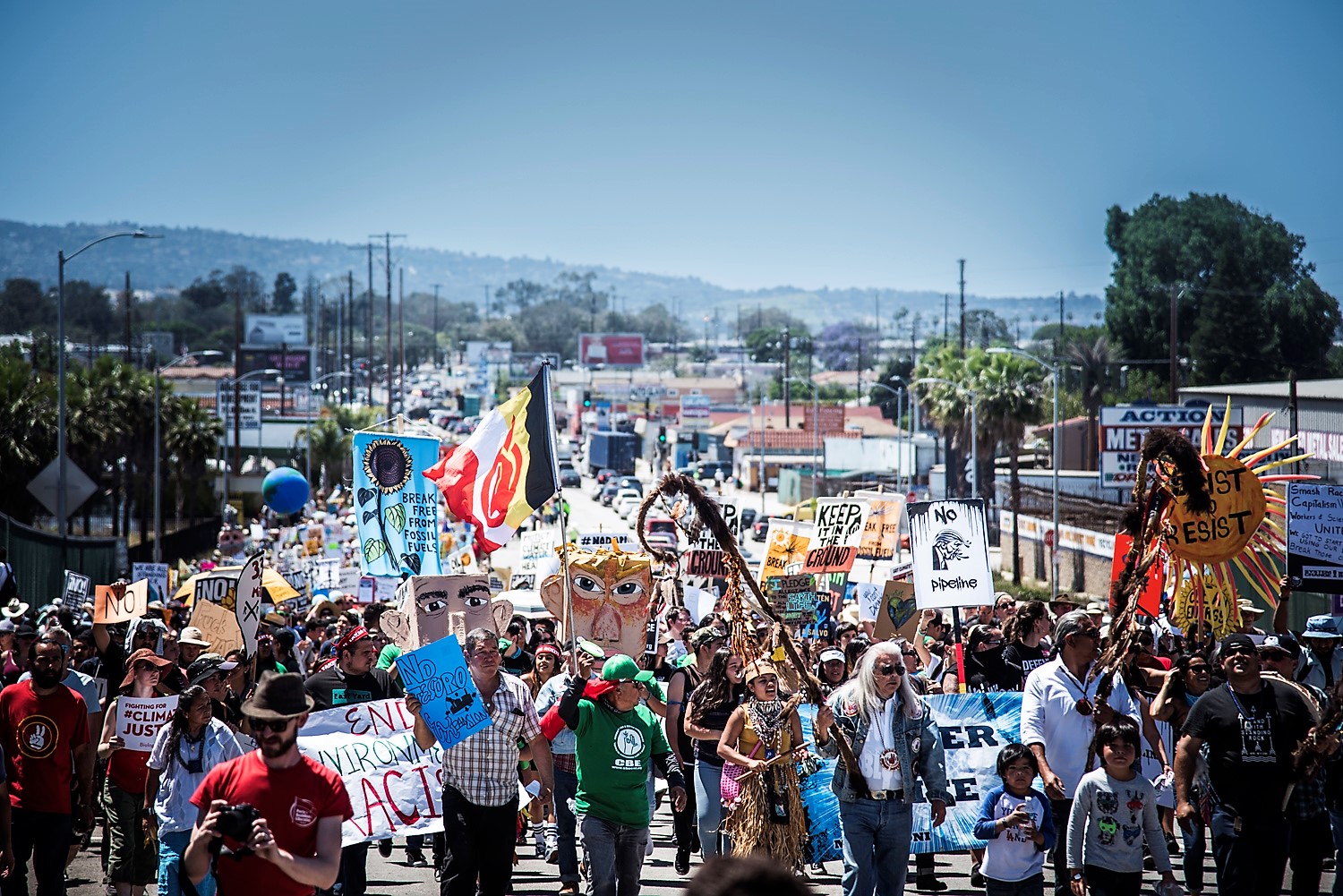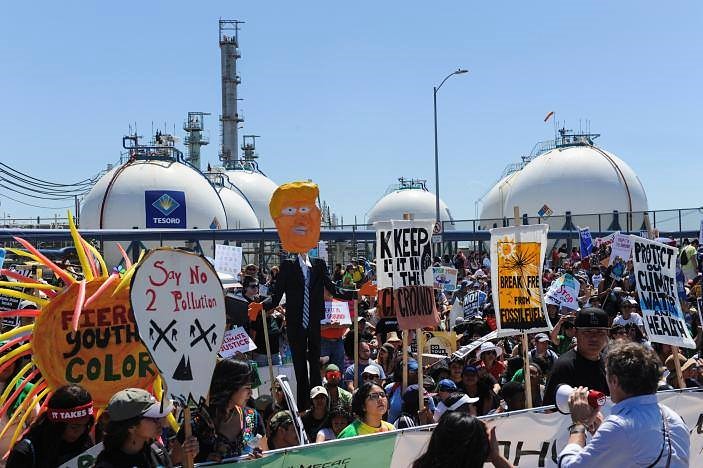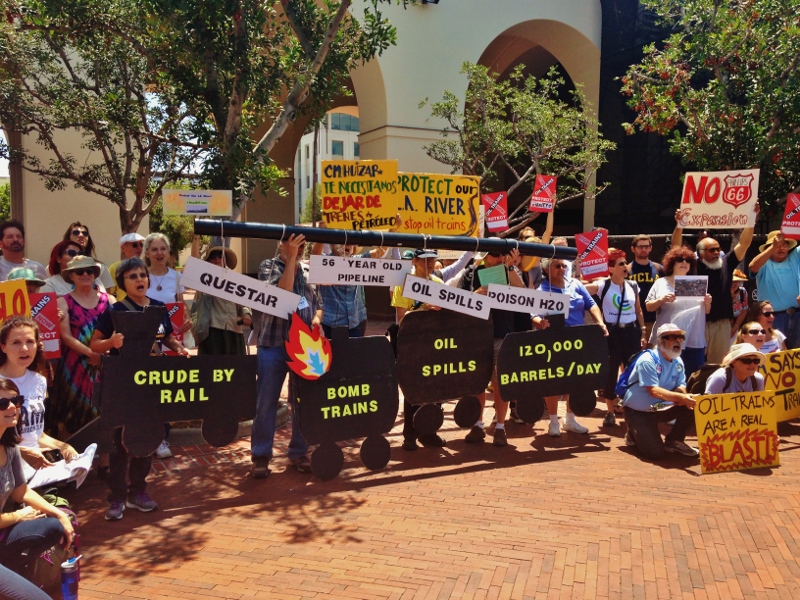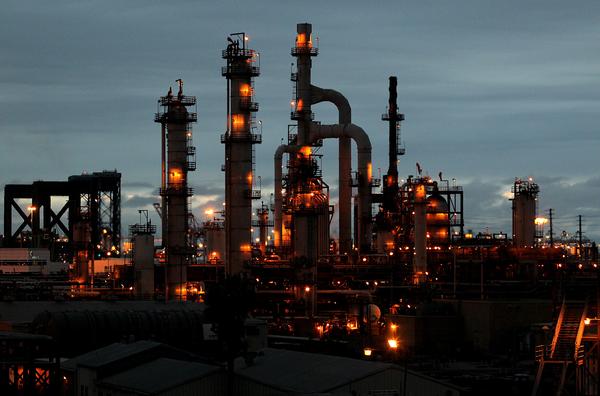Ashley Hernandez from Communities for a Better Environment (Wilmington), Jan Victor Andasan from East Yard Communities for Environmental Justice (West Long Beach/Carson), join JP Morris of EcoJustice Radio to discuss youth organizing in under-resource communities, reflecting on the Los Angeles People’s Climate March that happened in April 2017.
Tag: Communities for a Better Environment
People’s Climate March in LA Harbor Highlights Tesoro’s Dangerous Operations
Thousands marched on April 29th across the US and the world calling for solutions to the growing global climate crisis. In Los Angeles, thousands converged near a major petroleum refinery near two major ports in support of the nearby vulnerable communities calling for protections to their health and safety.
Hundreds Rally in Los Angeles to Stop Oil Trains
On July 11, Los Angeles joined communities across North America to call for a halt to shipping volatile and toxic crude oil via unsafe rail cars, which has caused numerous derailment explosions during the last six years as the practice has increased 4,000%. In particular, activists call for the City of L.A. to protect their communities and $1.3 billion river revitalization by opposing a crude by rail expansion in San Luis Obispo.
Great March for Climate Action: Kick-Off in Los Angeles – March 1st
The time for climate action is now! On Saturday, March 1, the SoCal Climate Action Coalition 350 and its regional partners will rally in the shadow of a Port of Los Angeles oil refinery, sending marchers off on a 17.5-mile trek through the streets until they reach downtown Los Angeles. Hundreds of marchers will then continue their journey for 3,000 miles towards Washington D.C., reaching out to everyday citizens along the way on how they can fight climate change in their daily lives.
Valero Moves to Ship Tar Sands By Rail into LA Harbor
Valero Energy seeks permits for large-scale shipments of low-quality tar sands oil via rail into their Port of Los Angeles refinery, without any public comment or environmental review. As part of a larger move to transport climate-disrupting unconventional crude to ports for refining and export to the world, it presents dangers given recent rail accidents, the corrosive nature of tar sands bitumen, and the significant pollution that surrounding communities already live with.





